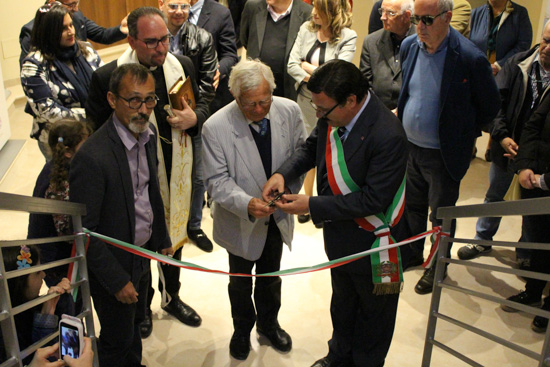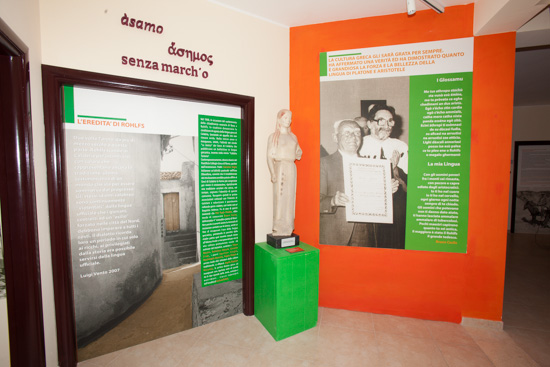| The museum was inaugurated in Bova in 2016, thanks to the combined efforts of the Aspromonte National Park and the local authorities dedicated to the promotion and protection of the cultural heritage of the historical-linguistic minority of the Greeks of Calabria. |
 |
The civic museum was dedicated to the German linguist Gerhard Rohlfs (Berlin, 14 July 1892 – Tübingen, 12 September 1986) due to his important work in the valorization of the Calabrian Greek language in the 1920s. It was in fact Rohlfs who succeeded in demonstrating its Magno-Greek origin, rejecting the hypothesis of those who instead believed that it was a language spread in Calabria following the Byzantine conquest of Southern Italy. |
 |
The museum is located at the entrance of the town which is particularly symbolic as it is the exact point from where, in the mid-nineteenth century, English traveller Edward Lear sketched a beautiful view of Bova, now exhibited in the museum. |
 |
A visit to the museum enables you to delve into the peculiarities of the Calabrian Greek language and its thousand year old history. The ancient language is still spoken today on the southern Aspromonte slopes in the Calabrian towns of Bova, Bova Marina, Condofuri and Roghudi Nuovo. |
 |
Each of the six rooms of the museum is dedicated to a great scholar interested in the complex heritage of the Greeks of Calabria. In these rooms you can discover different aspects of the Calabrian Greek language, explained through photos, historical documents and audio-visual installations, allowing you to listen to and understand this ancestral language dating back to the time of Homer. As well displaying archaeological and ethnographic artefacts, the museum also has objects of rural life that belonged to Gerhard Rohlfs himself which were donated by his son Eckart. |
 |
On visiting the museum you can trace the progress of the German linguist following the exhibition of his thesis on the Magno-Greek origins of the Calabrian Greek language. His hypothesis bothered Italian linguists of the time, since it undermined the nationalist vision of the Fascist regime in highlighting how ancient Rome had not been able to latinize the entire Italian peninsula.
|
